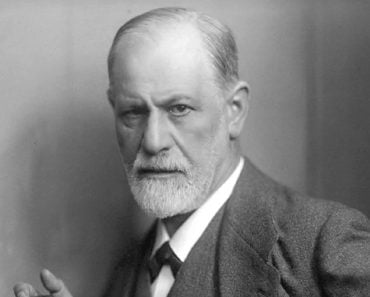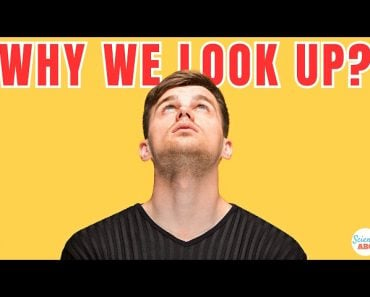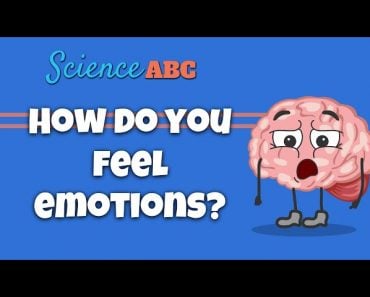Sigmund Freud is a household name, most known for his bold theories, such as penis envy and the Oedipus complex, or the infamous Freudian slip. However, Freud’s theories were also among those that form the foundation of modern psychology. This article will examine some of Freud’s work and the criticisms of it.
Everyone has heard of Sigmund Freud at least once in their lifetime. He’s typically seen as either the genius that made modern psychology a reality, or just an unscientific fraud. Either way, he remains the quintessential psychologist.
Sigmund Freud, born Sigismund Schlomo Freud on May 6, 1856, in what is now the Czech Republic, was a seminal figure in the history of psychology. Freud was born into a Jewish family, and his father was a wool merchant. He was the eldest of eight children. His early education was heavily focused on classical literature, and he showed early signs of academic brilliance. Freud attended the University of Vienna, where he studied medicine. His medical training would later influence his approach to understanding the human mind and behavior.
After completing his medical degree, Freud specialized in neurology. He worked at the Vienna General Hospital, where he conducted research on cerebral palsy and began exploring the role of the unconscious mind in psychological disorders. This work laid the foundation for his later development of psychoanalysis.
Recommended Video for you:
Freud’s Understanding Of Human Nature
Freud is widely regarded as the founder of psychoanalysis, a field that has significantly influenced the development of modern psychology and the understanding of human behavior. A big part of his theory related to parts of the human psyche.
Freud’s viewpoint on human nature is centered on the constant flow of energy within one’s personality. He suggested that the human psyche consists of three interlinked parts: the conscious mind, which is responsible for perceiving the external world; the preconscious mind, which holds concealed memories and overlooked encounters that can be remembered; and the unconscious mind, which contains primal, suppressed and potent influences.
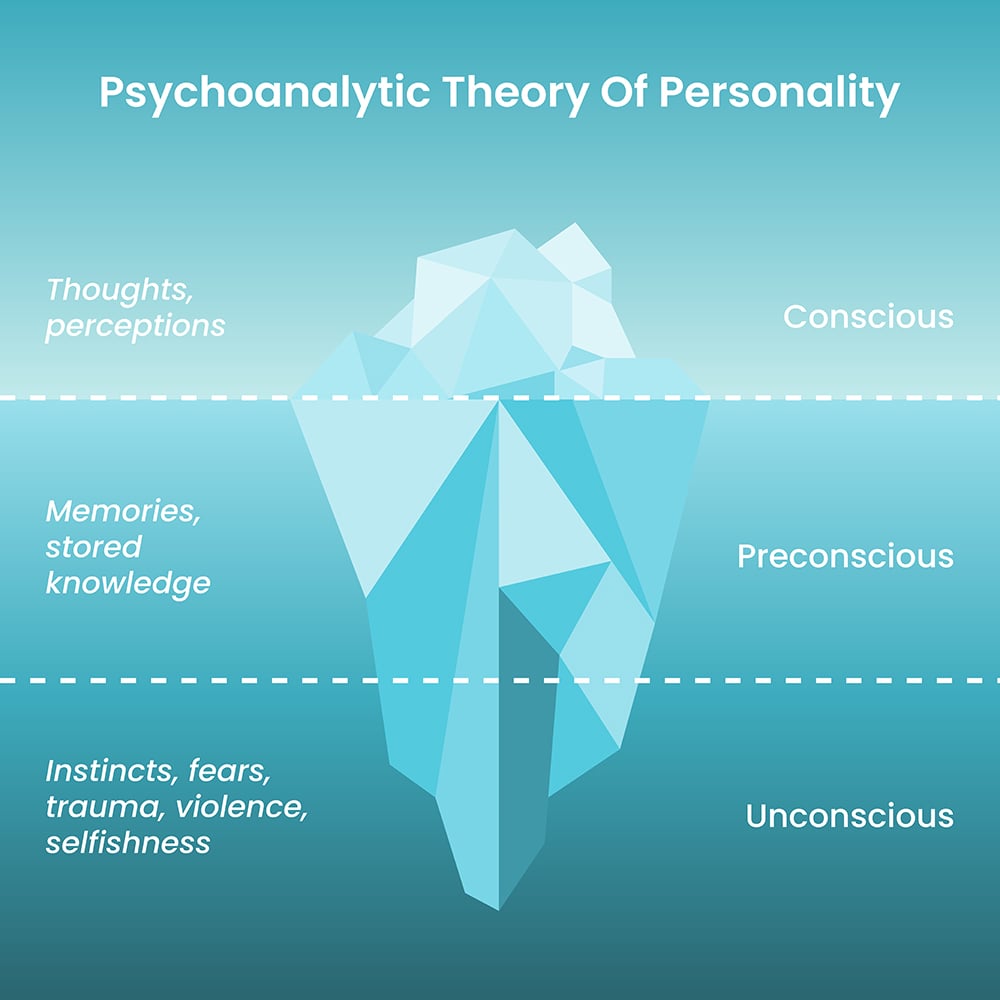
According to Freud, human personality is composed of three components: the Id, the Ego, and the Superego. Let’s think of these as being the three friends that your mind has. The Id is like the impulsive friend who just wants what it wants, no matter what. It’s all about seeking pleasure ASAP. The Ego is the practical friend in the group, the one who makes decisions and considers the consequences of certain actions. The Ego tries to find a balance between the Id’s desires and what’s actually doable in the real world.
And then there’s the Superego—think of it as the moral compass. This friend brings in values and rules, usually from parental figures or society, and helps you make choices that align with what’s considered right or wrong. So, according to Freud, this trio works together (and sometimes against one another!) to shape your thoughts and actions.
Both the Id and the Superego operate through the unconscious mind, while the Ego operates in the conscious mind. However, Ego also influences the preconscious and the unconscious levels of the mind.
Also Read: Can We Use Psychodynamic Theories Even Today?
Frued’s View Of Human Personality
Freud’s theory of personality delves into various factors that shape human behavior and mental processes. Central to his psychoanalytic theory are the concepts of cathexis and anticathexis, as well as the life instincts (Eros) and death instincts (Thanatos).
Cathexis And Anticathexis
Cathexis refers to the investment of mental energy in people, ideas or objects. Imagine your mind as a battery that powers your thoughts and feelings. When you really care about something or someone, you use up some of that battery power to focus on them. This energy that you put into things is linked to your desires and what makes you tick.
Anticathexis, on the other hand, involves the ego’s effort to block or suppress socially unacceptable desires originating from the id, the part of the mind driven by primitive instincts and the pleasure principle.
In simple words, the Ego acts like a buffer, and its job is to keep you acting nice and socially acceptable. Thus, it puts in extra effort to stop any not-so-nice thoughts from taking over your actions. This superhero defense move takes a lot of mental energy, like a power struggle perpetually raging inside your brain.
To illustrate this, imagine that you are hungry, so your id is urging you to seek food immediately. The ego, being the conscious and rational part of the mind, may engage in anticathexis by blocking that immediate fulfillment of the hunger in a socially unacceptable way. Instead, it might create a mental image of a delicious meal, browse through a cookbook, or engage in some other activity related to the desire, thus dispersing the excess energy from the id.
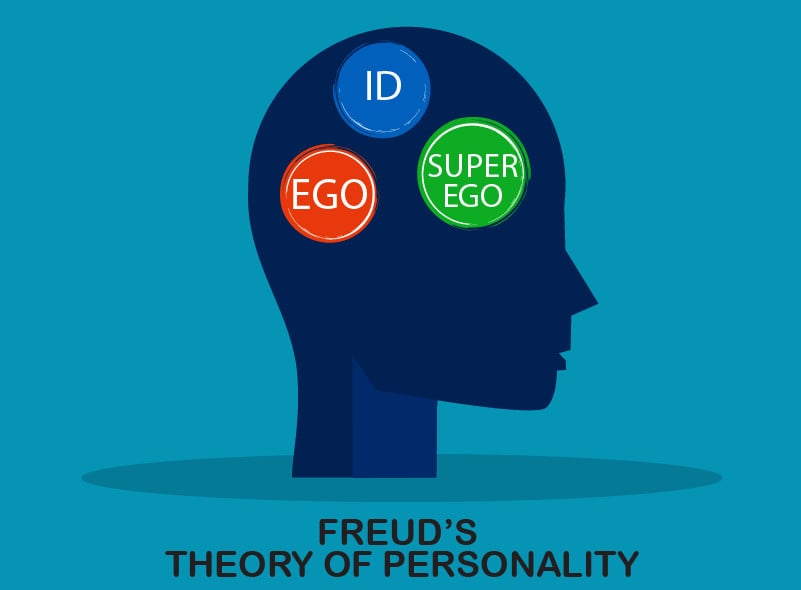
According to Freud, there is a limited amount of energy available for the Ego, and when a significant portion is devoted to suppressing urges through anticathexis, less energy remains for other mental processes.
Life And Death Instincts
Freud’s theory also introduces the idea of life instincts (Eros) and death instincts (Thanatos). Life instincts are related to basic survival needs, reproduction, and pleasure. These instincts drive common behaviors, such as seeking food, shelter, love, and sex, which are crucial for an individual’s survival and well-being.
Freud proposed that all humans possess unconscious death instincts. The death instincts (Thanatos) manifest as an unconscious wish for death, but they are largely tempered by our life instincts. Self-destructive behaviors are considered expressions of the death drive, but their prominence is thought to be diminished by the life instincts’ more prominent influence.
Freud’s Psychosexual Stages Of Development
Psychoanalysis also consists of psychosexual developmental stages. Freud emphasized that each stage in these series of developmental stages focuses on a zone of pleasure, which is said to be dominant at a particular time. These are:
- Oral Stage: When you’re a baby, your mouth is like your happy place. Sucking and biting stuff makes you feel good.
- Anal Stage: As you get a bit older, you learn about going to the potty. Holding in or letting go of poop becomes somewhat fascinating.
- Phallic Stage: When you’re around 3 to 6 years old, you start noticing the differences between boys and girls. Your private parts are the main attraction, and you’re figuring out your feelings about them.
- Latency: Around 6 until puberty, a young person is all about hanging out with friends and learning stuff.
- Genital Stage: Puberty hits, and now you begin to form real relationships with others. If everything’s been going well so far, boys and girls start getting interested in each other in romantic ways.
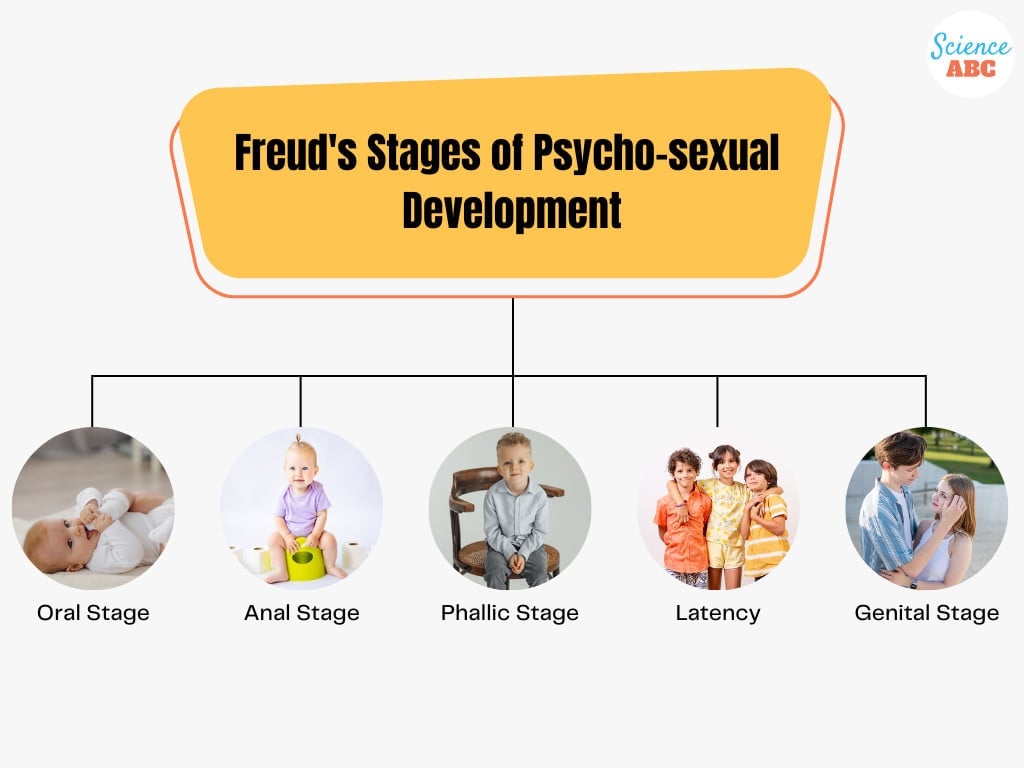
This assessment of a child’s psychological development no longer holds, however. Several other psychologists, such as Jean Piaget, have proposed alternative stages of development in children that are better backed by scientific research.
Penis Envy And Fixation
Freud famously proposed something called penis envy. It is about girls feeling jealous because they don’t have a penis like boys. He thought this realization made girls feel like they were missing out on something powerful. He believed that this could affect how girls grow up, shaping their personalities and relationships.
If you have a tough time in the earlier stages of development, you might get stuck there in some ways, like always wanting to suck on something or being super neat about certain things. This is known as fixation. Think of “fixation” as getting stuck at a certain stage of your emotional development, like being glued to a particular way of thinking or feeling from your past.
When someone goes through these stages, as described above, they’re supposed to move on to the next one as they get older. However, sometimes, due to challenges or experiences, someone might not fully move forward. It’s like they hang around a certain stage for longer than they should.
For example, let’s say someone had a difficult time during the “anal stage” when they were learning about using the potty. If they had too much pressure to be super neat or had too little guidance, they might become fixated on cleanliness or messiness as an adult. It’s like their mindset gets kind of “stuck” on that stage, and it affects how they approach many other things in life.
Fixation can also lead to using defense mechanisms, which are like subconscious ways to deal with stress. For instance, if someone’s fixated on the “oral stage,” they might always want to put things in their mouth as a way to soothe themselves, like biting their nails, chewing on pens, or even smoking!

Defense Mechanisms
Defense mechanisms are mental tools that people use to handle uncomfortable thoughts and feelings. They’re part of Freud’s theory, and they help protect our minds from things or situations that might make us feel anxious or guilty.
Repression
This is a primary defense mechanism. It involves the unconscious excluding distressing or painful thoughts and memories from our conscious awareness. Repression allows these thoughts or memories to remain hidden in the unconscious. It’s like someone blocking out a traumatic event from their past to avoid feeling upset about it.
Example: A person who experienced a traumatic event in their childhood may completely block out the memory of the event, pushing it into the unconscious mind to protect themselves from the distressing emotions associated with it.
Denial
This is like pretending an issue doesn’t exist, even if it’s right in front of you. An example is ignoring a health problem and acting like everything’s fine.
Example: An individual who has a serious health condition might refuse to acknowledge the diagnosis and avoid seeking medical treatment because they cannot accept the reality of their illness.

Regression
When people use regression as a defense mechanism, they unconsciously slip back into behaviors that they used when they were younger, usually during less stressful times. This can provide some comfort, as those behaviors are familiar and often associated with feeling safe.
Example: Picture an adult acting like a child by sucking their thumb or seeking comfort items.
Projection
Rather than acknowledging one’s own unacceptable thoughts, feelings, or motives, a person instead attributes these qualities to someone else. It allows the individual to disown their undesirable traits and shift responsibility onto others.
Example: A person who has feelings of jealousy towards a friend might accuse the friend of being jealous of them instead, effectively projecting their own emotions onto the other person.
Rationalization
In this defense mechanism, individuals create plausible explanations or justifications for their actions to make them seem reasonable or acceptable. The reasoning comes after the behavior has occurred, and it may not necessarily reflect the true motivation behind the action.
Example: After not getting a job they applied for, a person might rationalize the rejection by saying, “It’s their loss; they wouldn’t have appreciated my skills anyway,” to protect their self-esteem and cope with the disappointment.
Reaction Formation
This is when a person behaves in a manner opposite to their true feelings, often in an exaggerated way. For example, someone who dislikes another person intensely may act overly friendly or kind towards them to hide their true feelings.
Example: A person who has repressed feelings of anger towards their boss might go out of their way to be excessively polite and kind to the boss, displaying a behavior that is the stark opposite of their true feelings.
Displacement
Moving your feelings from the real cause to something or someone else. Imagine coming home angry from work and taking it out on your innocent pillow. This mechanism allows individuals to release emotions without confronting the actual cause directly.
Example: After having a frustrating argument with their spouse, a person might come home and take out their anger on an unrelated object, like slamming a door or yelling at their pet, to redirect the emotional response away from the original source.
Sublimation
Sublimation is a psychological concept that involves channeling intense emotions or desires into constructive and socially acceptable outlets. It is kind of like turning lemons into lemonade, but with emotions!
Example: An individual transforms their strong anger into productive energy by channeling it into an intense workout instead of reacting negatively.
Also Read: Is Feeling Inferior Actually Good For You?
Oedipus Complex And Electra Complex
The Oedipus complex is a psychological concept proposed by Sigmund Freud. The idea suggests that during a certain stage of childhood development, a child unconsciously develops feelings of love and attraction towards the parent of the opposite sex (for boys, it’s their mother and for girls it’s their father), while simultaneously feeling rivalry and jealousy towards the parent of the same sex. This usually occurs at ages between 3 to 6. This complex is named after the Greek mythological figure Oedipus, who unknowingly killed his father and married his mother. For girls, it is known as the Electra Complex.
Freud believed that the child’s desire for the opposite-sex parent could lead to a sense of rivalry and even a fear of punishment from the same-sex parent, which he called “castration anxiety” in boys. To deal with these complex emotions, children may repress their feelings and identify more closely with the same-sex parent as they grow older, forming their sense of gender identity and adopting societal norms.
Impact Of Freud’s Theory
Sigmund Freud’s theories have significantly shaped psychology and numerous related fields. They have practical applications in psychotherapy, inspiring self-exploration techniques and addressing unconscious processes. His notions of personality, including the id, ego, and superego, have contributed to personality assessments for generations.
Moreover, Freudian ideas are used for analyzing literature, art, and culture, revealing concealed meanings and themes. While some aspects of his work have evolved, his stages of psychosexual development still underpin child development theories. While contemporary psychology extends beyond Freud, his legacy continues to impact our understanding of human behavior, influencing therapy, literature, art analysis, and discussions about the intricacies of the human mind.
Criticism Of Freud’s Theory
Critics of Freud’s psychoanalytic theory have raised several prominent concerns that cast doubt on the validity and reliability of his work for the following reasons.
Lack Of Verbatim Transcripts
Freud didn’t write down exact copies of his talks with patients, and the notes that were taken often happened after the conversations happened. Critics argue that this could result in important data being lost or distorted over time, leading to potential omissions and biases in the recorded information.
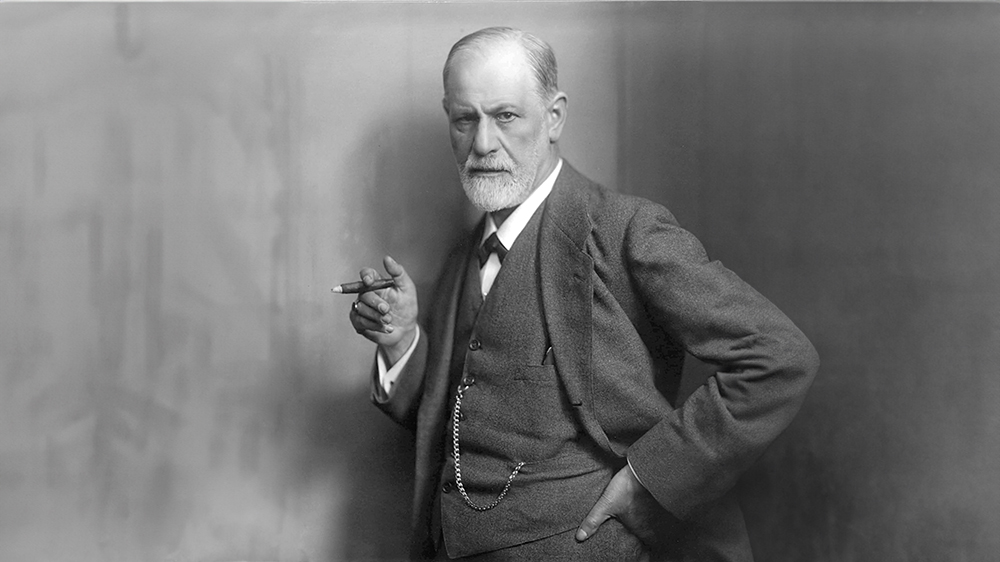
Selective Interpretation
Critics have pointed out that Freud might have remembered and noted down only the information that supported his ideas, possibly ignoring evidence that contradicted his assumptions.
Suggestive Procedures
It has been suggested that Freud might have used leading or persuasive techniques to make his female patients believe they had experienced childhood sexual abuse. Some critics worry that he might have unintentionally influenced patients’ memories.
Discrepancies In Case Histories
Differences have been found between Freud’s notes and the detailed histories of his cases. The fact that Freud got rid of most of his patient records makes it harder to verify what he claimed.
Lack Of Verification
Freud didn’t really verify his patients’ stories of childhood experiences, especially when it came to accusations of family members’ abuse. Critics think he should’ve tried harder to get more evidence to either support or question these claims.
Limited Sample Group
Freud built his theories on info from a small, similar group of people, mainly well-off Austrian women. Critics say this narrow group, influenced by the strict sexual attitudes of the late 1800s, might have made Freud focus too much on sexuality as a big part of personality.
Gender Bias
One of the main and most important criticisms of Freud’s theory is its gender bias and the overall concept of penis envy. Some criticism relates to how Freud’s ideas treat different genders. The concept of “penis envy,” for example, has been seen as unfair towards women. Critics say it reinforces old-fashioned gender beliefs and doesn’t consider how culture and society shape how we feel about ourselves. Plus, it doesn’t really fit with modern ideas about gender identity that transcend the binary of male and female.
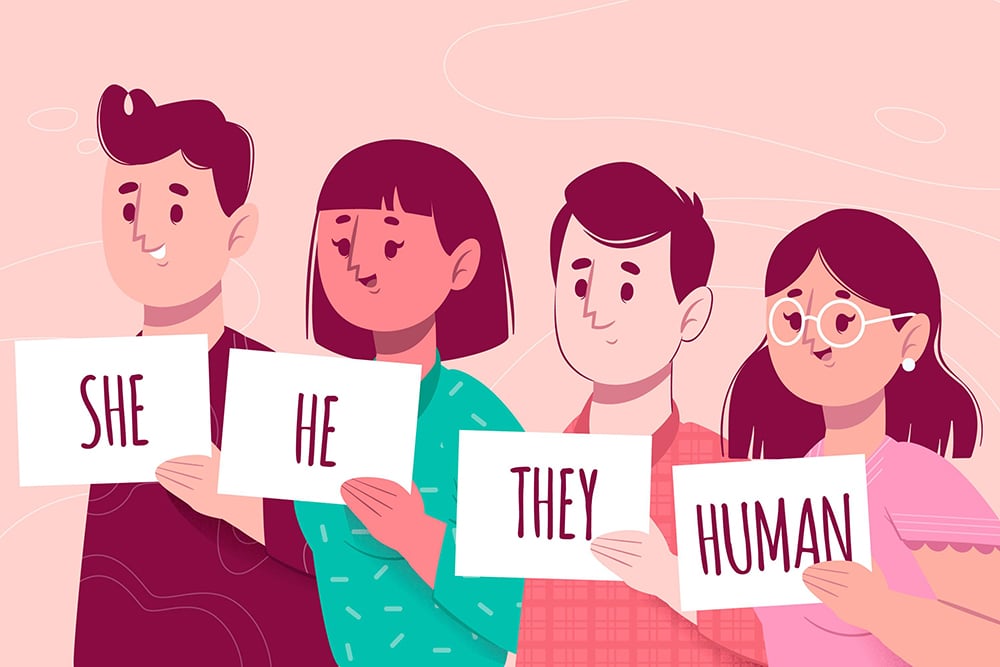
Moreover, the idea of penis envy has been challenged for its heteronormative assumptions. It assumes that girls are focused primarily on attaining male genitalia, as though heterosexual relationships are the norm. However, modern psychology acknowledges a more diverse understanding of gender identity. It recognizes that not all people fit in the traditional binary notions of being male or female.
These criticisms highlight the limitations and potential biases in Freud’s work. They raise serious questions about the generalizability and reliability of his ideas.
Sigmund Freud revolutionized the understanding of human behavior through his psychoanalytic theory. His ideas and concepts laid the foundation for modern psychology and talk therapy. However, they have also been a subject of immense controversy and criticism. While Freud’s contributions cannot be denied, the reasons behind his polarizing reception in modern pop culture and psychology studies are multifaceted and well worth exploring.
References (click to expand)
- https://doi/10.1037/hop0000135_b
- McIntosh, D. (1993, August). Cathexes and Their Objects in The Thought of Sigmund Freud. Journal of the American Psychoanalytic Association. SAGE Publications.
- Death Instinct - APA Dictionary of Psychology.
- SE Lantz. (2022) Freud Developmental Theory - StatPearls.
- Khan, M.R., Haider, K., & Syed, S. (2015). Girls' First Love; Their Fathers: Freudian Theory Electra complex.
- https://doi.org/10.1353/pbm.2002.0026.
- Hurst, L. C. (1982, February). What Was Wrong with Anna O?. Journal of the Royal Society of Medicine. SAGE Publications.
- Sigmund Freud: Conflict & Culture From the Individual to ....
- Eagle, M. N. (2007, January). Psychoanalysis and its critics. Psychoanalytic Psychology. American Psychological Association (APA).
- Horney K. (1993). Feminine Psychology. W. W. Norton & Company

